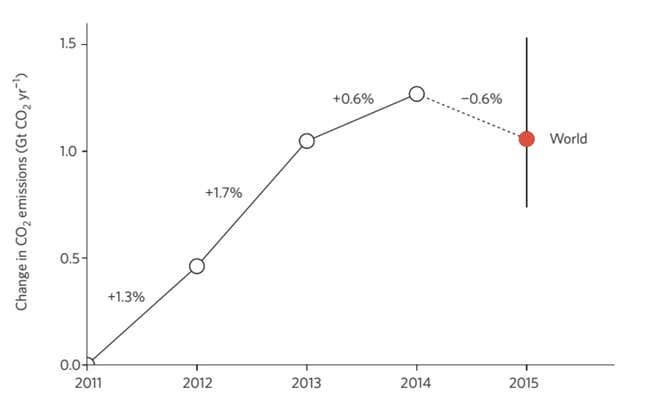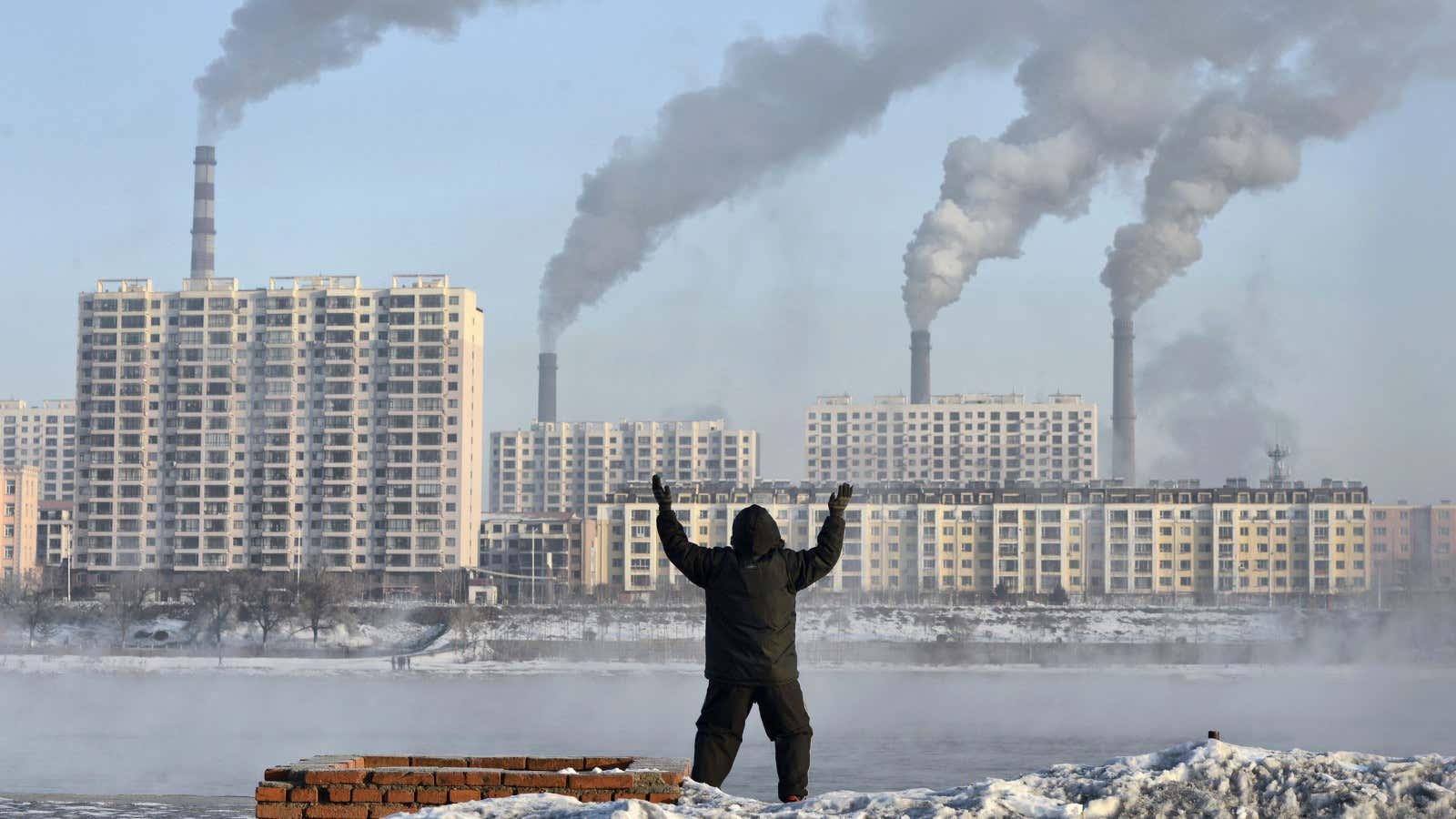The inexorable rise of carbon emissions has been a feature of the climate-change narrative for the past 20 years. Even as the world has got serious about collectively tackling global warming, the stronger urge to boost economic growth has resulted in billions more tons of CO2 blasted into the atmosphere every year.
But maybe not this year. Research published this week (pdf) in the journal Nature Climate Change claims that 2015 might see a small decrease in emissions, even as economies have continued to grow.

Of course, 2015 isn’t yet over and the prediction is based on trends for only part of the year. But the researchers note that the predicted decline of 0.6% this year would be consistent with last year—emissions rose in 2014, but by a very small amount.
“Time will tell whether this surprising interruption in emissions growth is transitory or a first step towards emissions stabilization,” the researchers wrote.
But they also noted that in either case it’s a welcome change from the historical norm, where CO2 emissions have grown hand-in-hand with GDP. Earlier this year, the International Energy Agency highlighted this ”decoupling” as an encouraging sign that real, deep emissions cuts might be possible.
However, the recent stalling of emissions can be mostly attributed to lower coal-related emissions from China, which has made big steps towards renewable energy and away from coal. But the country has also been through a significant economic slowdown.
Without a strong global commitment to reduce emissions, scientists see CO2 rising in the coming decades, far beyond the levels consistent with keeping the world’s warming below a crucial 2ºC level. Most of those extra emissions come from India and China.
